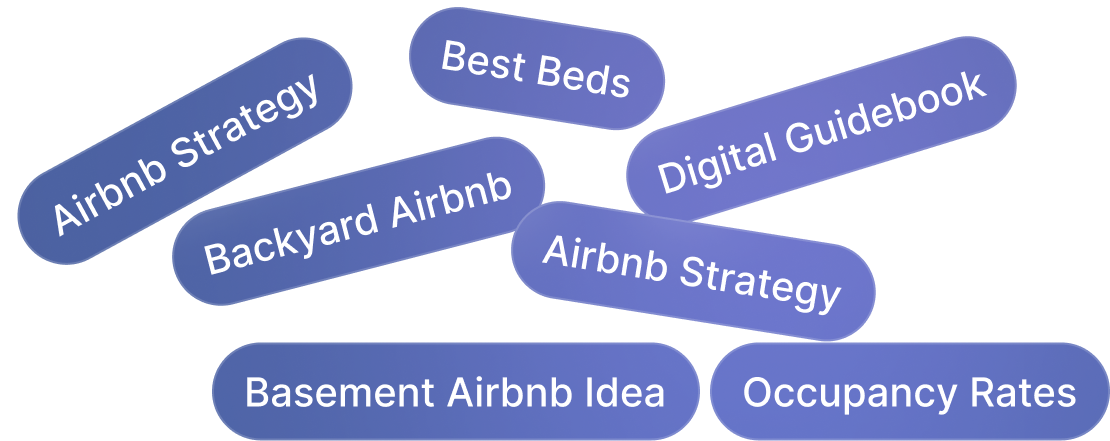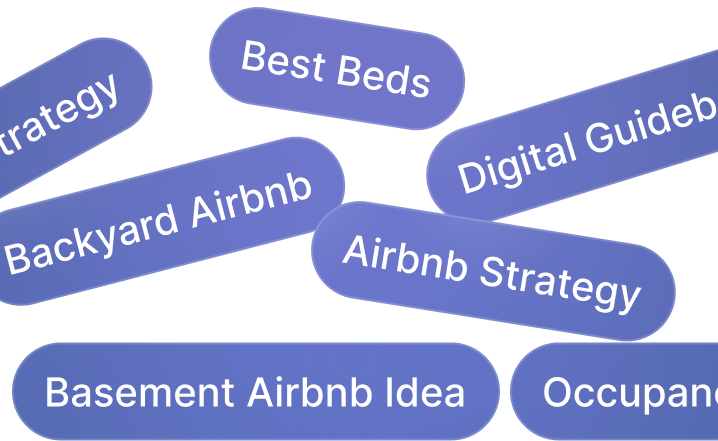After the pandemic, folks became more and more interested in getting outdoors. Along with that came a business opportunity. Short-term rental hosts can look beyond the typical room in a house and think about creating one-of-a-kind outdoor experiences with Airbnb camping properties. Whether it’s a glamping tent, a yurt, or a basic campsite, there’s a lot of opportunity for hosts to explore new streams of income. This post will cover everything you need to know about hosting an Airbnb camping option for guests.
Host Tools provides an automated, unified calendar for short-term rental hosts, allowing you to seamlessly list on all major channels. Start your free trial today!
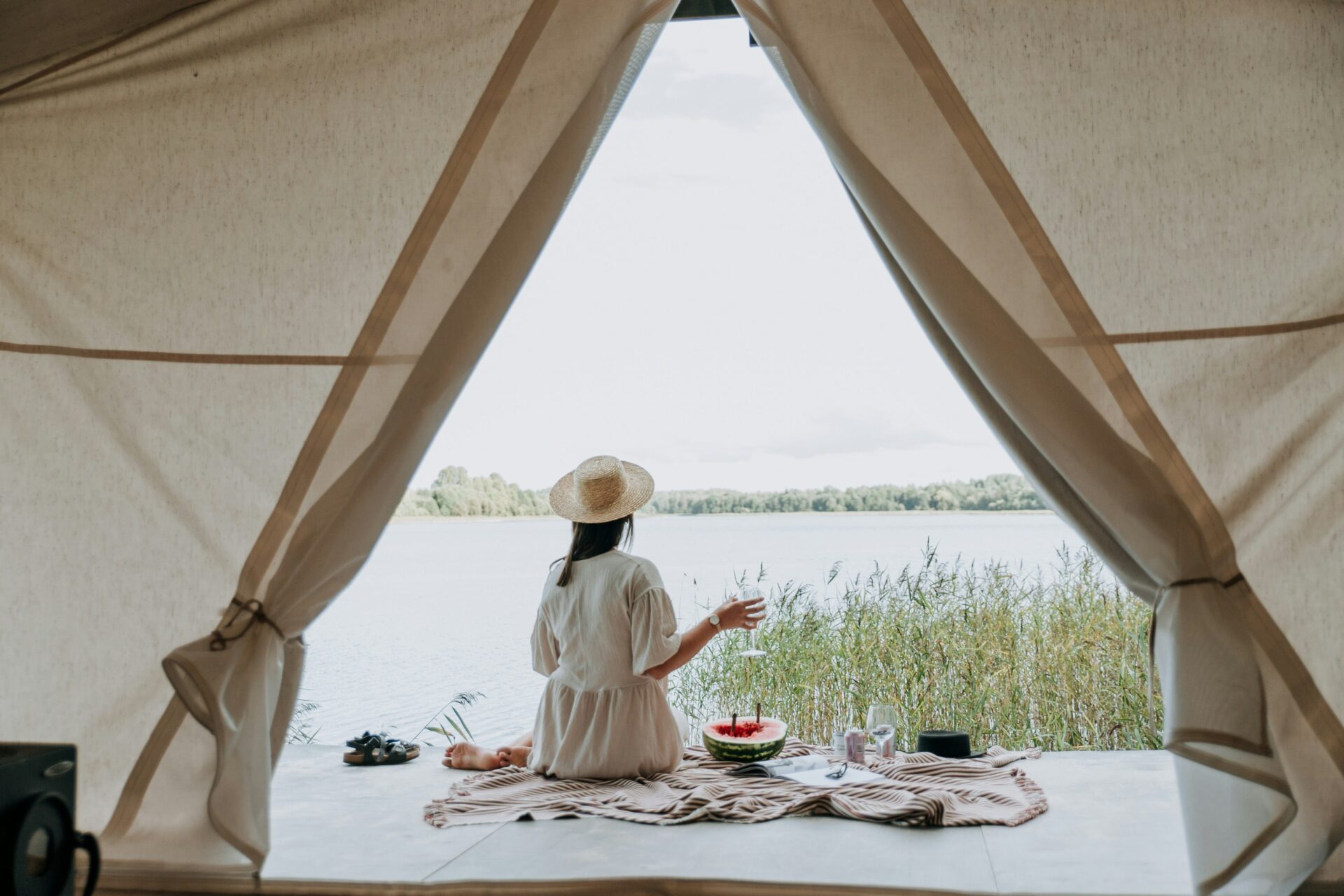
Why offer Airbnb camping sites?
There are a few reasons to consider getting into hosting Airbnb camping experiences. First, it’s generally cheaper to operate than your standard Airbnb. For example, if you already own a plot of land, it doesn’t take as much of a financial investment as building a cabin to get a glamping tent set up. Plus, people love the novelty of the experience.
Second, you’ll attract a different type of guests. A glamping stay is typically a more affordable option than a hotel. Therefore, you’re more likely to encounter folks looking to save a buck or two. Finally, Airbnb camping is a more sustainable form of travel. In an increasingly socially aware world, offering a sustainable stay will help your property stick out. Some travelers truly do base their booking decisions on a property’s sustainability.
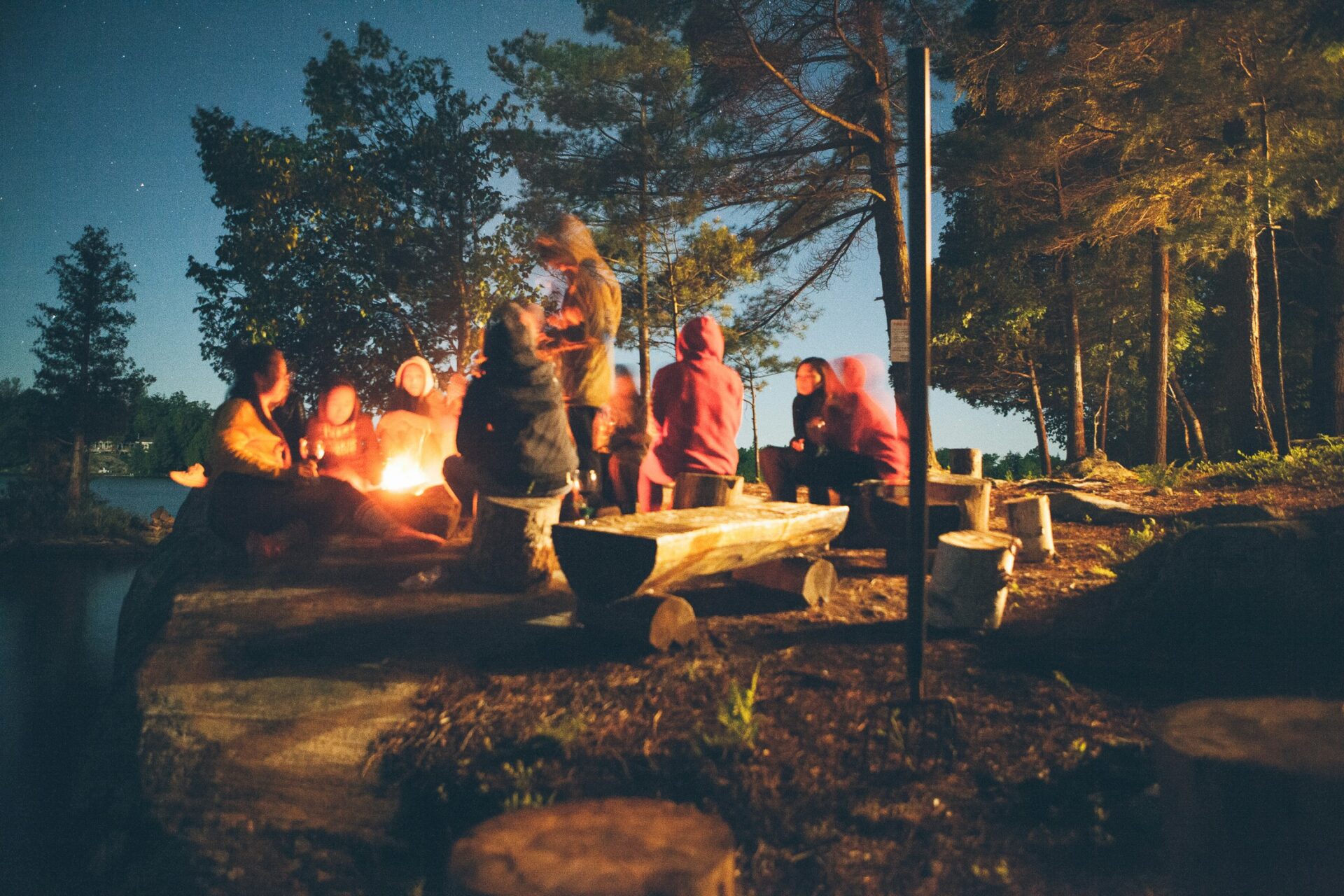
What to think about when hosting a campsite
As with any business, it’s important to go in with a plan. Below are a few key items to consider when getting your Airbnb camping business set up:
- Where are you located? Typically, guests are looking for some privacy when camping. The whole point is to feel like you’re alone in the woods! Try and find a spot that offers some natural privacy. It’s always a great idea to be close to hiking trails or other popular natural features.
- What facilities are available? If you’re hosting a glamping experience, you’re going to want to make sure some type of bathroom and shower situation is available. Whether it’s a separate bathhouse or a connected bathroom, these are important details that need to be clean in your Airbnb camping listing.
- Check your local rules and regulations: The last thing you want to do is get halfway done with your Airbnb camping site and realize you aren’t allowed to build one there. Before you start the process, check with your local authorities for any permits you may need.
- Consider eco-friendly features: Consider implementing a composting system. Or, if you’re hosting more of a tiny home, see how you can work with solar panels.
- Keep safety first: Be sure to include information in your house rules on how to use the fire pit or any food-storing requirements if you’re in an area with lots of wildlife.
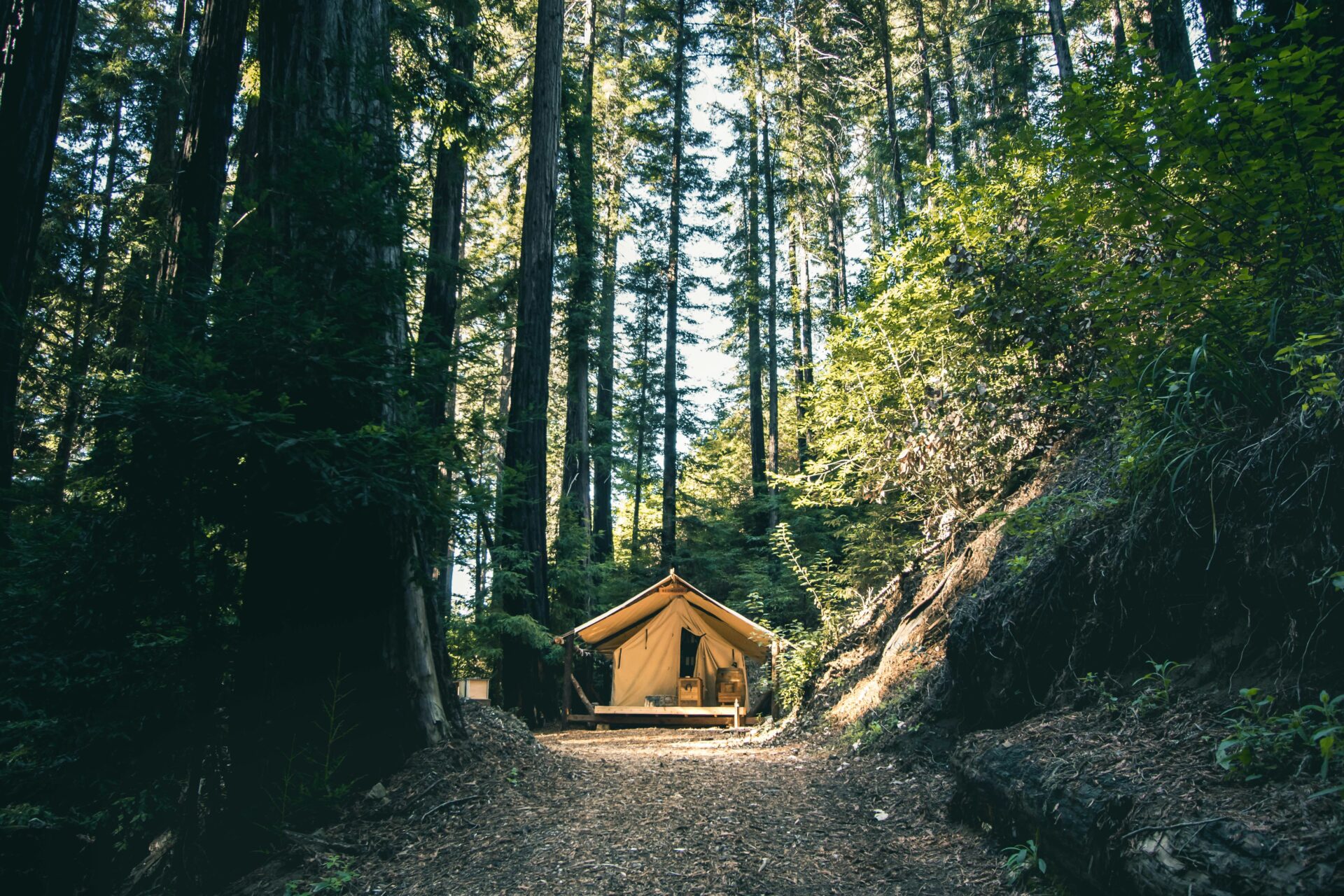
How to start hosting an Airbnb camping experience
Now that we’ve covered the basics, let’s dive a little deeper into how to get your Airbnb camping site up and running.
Step 1: Research and plan
- Who is your audience? Decide who you’re looking to serve. Is it couples or families? Groups or solo travelers? If you’re planning to host mostly parents with kids you’ll need additional amenities for childen. Or, if you’re allowing pets consider what items like bowls and treats you may need to have on hand.
- Check out your competitors: One of the best ways to learn is to see what your competitors are doing. Look at their amenities and how much they’re offering for the price. This will help you determine if you’re thinking too high or low of a nightly rate.
Step 2: Location, location, location
As the old saying goes, location, location, location, determines the success of your Airbnb camping site. Keep these factors in mind:
- What’s around? Are you located near a national park? How about a popular hiking trail or river for boating? These are the things that can make your home stand out if you provide unparalled access.
- How easy is it to get to? While a little adventure is expected, you don’t want to be too far from the major highways.
- Is it private? The last thing anyone wants is to be camping and have people in their homes starring at them. Make sure the campsite feels tucked away from people.
Step 3: Provide baisc amenities
Here are some basic amenities you may want to consider:
- Bathroom and Shower Facilities: Whether it’s a simple outhouse or a full bathroom with showers, make sure to provide options for your guests to freshen up.
- Campfire Ring/Pit: A designated area for campfires adds an authentic outdoor experience and allows for roasting marshmallows and telling ghost stories.
- Picnic Tables: Guests will appreciate having a place to sit and eat their meals comfortably.
- Trash Receptacles: Keep the site clean and environmentally friendly by providing trash bins for proper disposal. Provide specific instructions in your in bear country.
- Pet-friendly campsite rentals on Airbnb: Allowing pets at your rental can be a big win for those traveling with furry friends. Food and water bowls and a few toys are thoughtful touches.
- Family-friendly campsite rentals: Thoughtful amenities like kids toys, travel cribs, and more are great ways to attract families.
How Host Tools Can Help
Host Tools is an invaluable resource for hosts looking to streamline their operations and provide exceptional experiences for their guests. With features like automated messaging, smart lock integrations, and cleaner management, Host Tools makes it easy to manage bookings across multiple platforms efficiently.
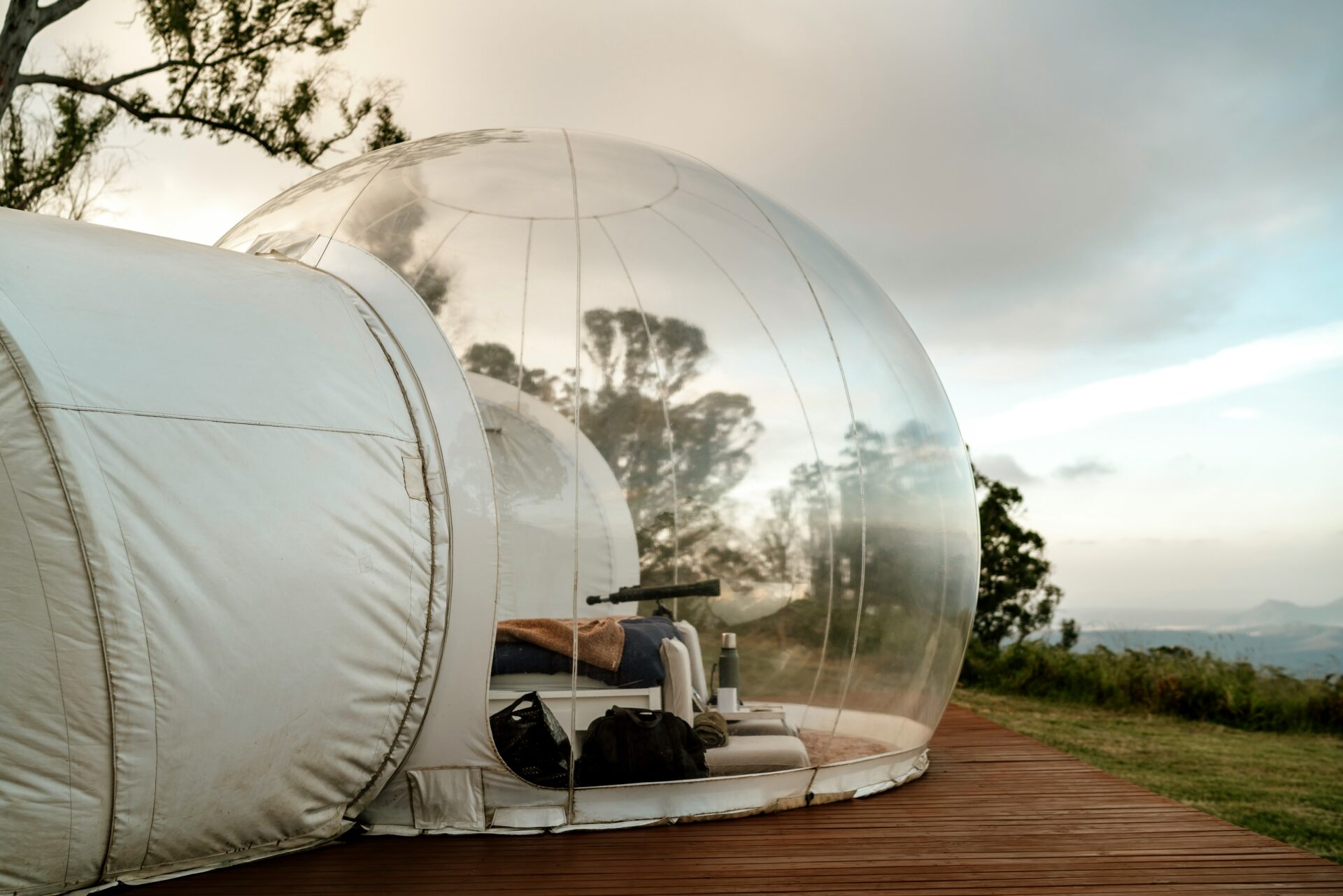
Final Thoughts
Leveraging the right tools and strategies is essential for creating outstanding guest experiences and maintaining a thriving short-term rental business. By staying organized, prioritizing guest satisfaction, and utilizing platforms like Host Tools, hosts can simplify their processes and focus on what truly matters: providing memorable stays. Take the time to innovate, adapt, and refine your hosting practices, and success will undoubtedly follow.
Host Tools provides an automated, unified calendar for short-term rental hosts, allowing you to seamlessly list on all major channels. Start your free trial today!


